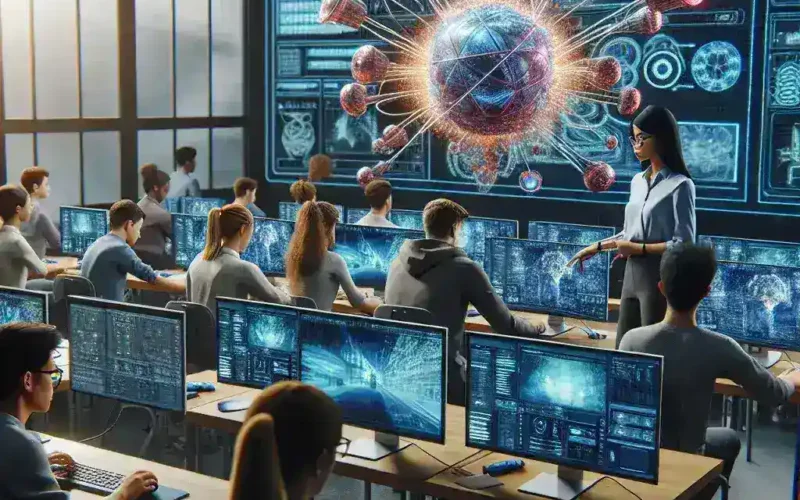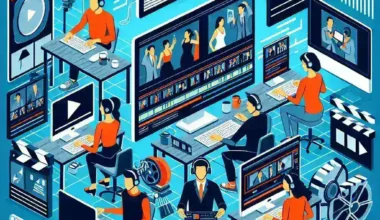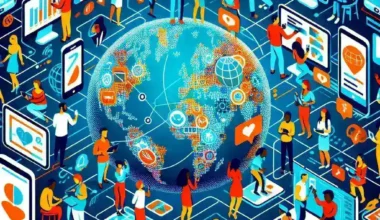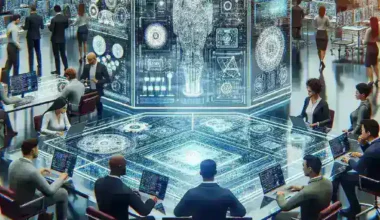Introduction
In recent years, the demand for skilled professionals in the fields of game development, virtual reality, and 3D design has surged. Recognizing this need, Epic Games, the creator of the popular Unreal Engine, has taken significant steps to expand training initiatives for high school programs. This move not only aims to bolster the skills of students but also prepares them for future careers in a tech-driven world.
The Importance of Unreal Engine in Education
Unreal Engine has established itself as a leading platform in the gaming industry and beyond. It is widely used for creating not just video games but also simulations, virtual reality experiences, and architectural visualizations. By integrating Unreal Engine into high school curricula, students gain access to:
- Cutting-edge technology: Students learn to use tools that are in high demand in the job market.
- Creative expression: The engine allows for a high degree of creativity in game design and other applications.
- Collaboration skills: Many projects require teamwork, teaching students valuable interpersonal skills.
What the Expanded Training Program Includes
Epic Games’ expanded training program includes a variety of resources and initiatives designed to enhance learning experiences:
1. Curriculum Development
Epic Games collaborates with educators to develop comprehensive curricula that integrate Unreal Engine into existing courses. This includes:
- Game Design Fundamentals: Teaching the principles of game design, including level design, game mechanics, and storytelling.
- 3D Modeling and Animation: Equipping students with skills in creating and animating 3D assets.
- Programming and Scripting: Introducing coding concepts through Blueprints, Unreal Engine’s visual scripting system.
2. Teacher Training
To ensure effective implementation, Epic Games provides professional development for teachers, enabling them to become proficient in Unreal Engine. This training includes:
- Workshops: Hands-on workshops to familiarize educators with the platform.
- Online Resources: Access to video tutorials, documentation, and forums for ongoing support.
3. Student Competitions and Events
To foster a competitive spirit and real-world application of skills, Epic Games organizes student competitions. These events encourage:
- Creativity: Students showcase their innovative game designs.
- Collaboration: Team projects that promote group dynamics.
Historical Context of Epic Games’ Educational Initiatives
Epic Games has a rich history of supporting education. The Unreal Engine Educational Grant was established to provide schools with the resources needed to teach game development. This initiative has evolved over the years, reflecting the changing landscape of technology and education. The expansion of training programs is a natural progression of this commitment, aligning with the growing interest in STEM education.
Future Predictions: A Growing Trend in Education
As technology continues to advance, the integration of tools like Unreal Engine into education is likely to increase. Predictions for the future include:
- More Partnerships: Increased collaboration between tech companies and educational institutions.
- Expanded Access: More high schools, particularly in underserved communities, will gain access to these resources.
- Innovative Learning Models: Blended learning approaches that combine in-person and online education.
Pros and Cons of Unreal Engine Training in High Schools
While the expansion of Unreal Engine training offers numerous benefits, it also presents some challenges:
Pros
- Skill Development: Students acquire valuable skills that are applicable in various industries.
- Career Opportunities: Exposure to game development can lead to internships and job placements.
- Engagement: Interactive learning experiences keep students engaged and motivated.
Cons
- Resource Intensive: Implementing such programs requires significant resources and training.
- Equity Issues: Not all schools may have the infrastructure to adopt these programs.
Real-World Examples of Success
Several high schools across the U.S. have already implemented Unreal Engine programs with remarkable success:
- Example 1: A high school in California developed a course where students created their own video games, allowing them to showcase their projects at a local gaming convention.
- Example 2: A school in Texas integrated Unreal Engine into their art curriculum, enabling students to create 3D artworks displayed in virtual galleries.
Cultural Relevance: The Growing Influence of Gaming
Gaming has become a significant part of modern culture, influencing everything from entertainment to education. The skills learned through Unreal Engine training extend beyond game development, fostering creativity and problem-solving abilities that are valuable in any field.
Statistics Supporting the Need for Tech Training
According to industry reports, the gaming industry is expected to reach $200 billion by 2023. Additionally, a survey by the Entertainment Software Association indicates that 70% of U.S. households engage with video games. These statistics highlight the importance of preparing students for careers in this thriving sector.
Expert Quotes on the Future of Education and Technology
Industry experts have weighed in on the significance of programs like Epic Games’ Unreal Engine training:
“As the technology landscape continues to evolve, educational institutions must adapt to prepare students for the jobs of tomorrow. Programs like Unreal Engine training offer students a unique opportunity to gain relevant skills.”
Conclusion
Epic Games’ expansion of Unreal Engine training for high school programs represents a significant step towards equipping the next generation with essential skills in game development and 3D design. By investing in education, Epic Games is not only fostering creativity and innovation but also preparing students for future career opportunities in a rapidly evolving technological landscape. As we look to the future, the potential impact of these initiatives will resonate far beyond the classroom, shaping the careers of countless individuals and the industry as a whole.




